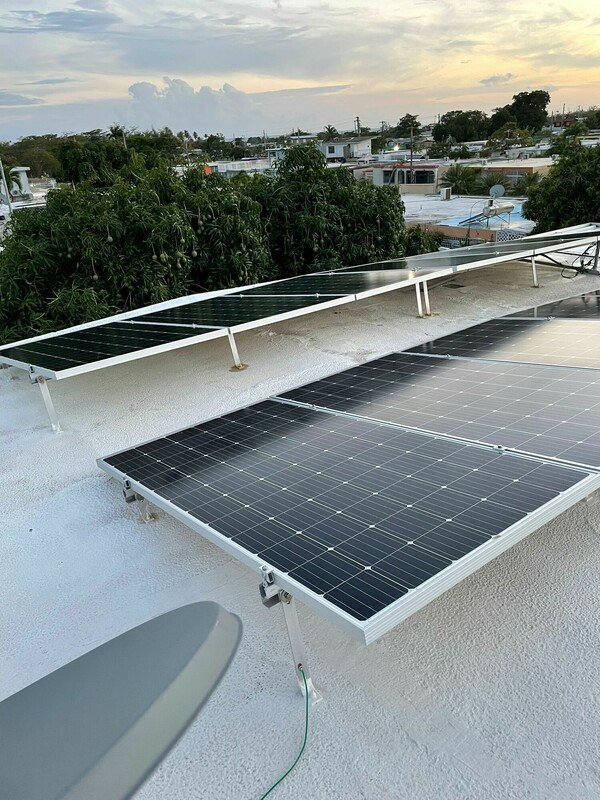For Immediate Release, May 2, 2024
|
Contact: |
Howard Crystal, Center for Biological Diversity, (202) 809-6926, [email protected] |
Lawsuits, Petitions Aim to Redirect Fossil Fuel Disaster Funding Toward Distributed Renewable Energy, Storage
WASHINGTON— Energy justice, consumer and environmental groups sued the Federal Emergency Management Agency and the Department of Housing and Urban Development today for withholding public records and failing to outline plans to use resilient renewable energy to rebuild communities ravaged by the climate emergency.
The groups also formally petitioned the agencies to craft new regulations to redirect taxpayer dollars these agencies are spending to prop up fossil fuels — the primary driver of human-caused climate change — toward distributed renewable energy recovery and mitigation projects. FEMA spent more than $14 billion last year in states across the country pummeled by floods, fires, hurricanes and other weather-related disasters made worse by burning oil, gas and coal.
“The public has the right to know whether federal agencies are meaningfully addressing the climate emergency or pouring gasoline on the fire by rebuilding communities with fossil fuels,” said Howard Crystal, legal director of the Center for Biological Diversity’s energy justice program. “It’s reckless to keep spending billions in disaster funding on fossil fuel projects that make the climate emergency worse. FEMA and HUD can be engines of change by funding and building thriving, resilient communities free from the destructive fossil-fuel economy.”
Today’s lawsuit against HUD says the agency violated the Freedom of Information Act by withholding public records detailing its spending on energy-related projects and assistance to help communities rebuild after disasters. The records should show how much HUD spends on fossil-fuel related projects compared to sustainable renewable energy alternatives.
Today’s lawsuit against FEMA says the agency has ignored a 2018 congressional requirement to define the term “resiliency,” which could determine how much environmental justice communities receive in federal disaster funding. FEMA’s definition of resiliency would show whether the disaster agency is focused on ensuring communities plan and rebuild to both withstand and address the climate emergency.
“Insular areas like Puerto Rico are frequently hit by storms, hurricanes, floods and other climate-induced events that impact or tear down centralized electric transmission and distribution lines, poles, towers and substations and cut power supply for many communities and sometimes the entire archipelago,” said Ruth Santiago, attorney for Comite Dialogo Ambiental, a community environmental group based in Salinas, Puerto Rico. “It is imperative that FEMA and HUD direct public funds to resilient energy alternatives such as rooftop or onsite solar and storage that can provide energy security, justice and equity and promote community empowerment.”
“FEMA and HUD are stuck in the fossil fuel past and failing communities battered by climate disasters,” said Roishetta Ozane, director of the Vessel Project of Louisiana. “Hurricanes, tornadoes, flooding, you name it, communities across the Gulf Coast are overwhelmed by the climate emergency. Instead of tackling the problem head on, FEMA and HUD spend billions to entrench a fragile, fossil-fueled power system, putting lives at risk when disaster strikes. These families deserve a safe and resilient future; it’s time for FEMA and HUD to center energy justice and build a renewable future.”
“Instead of helping our neighborhoods rebuild sustainably, FEMA is spending billions on fossil fuels projects that are making us sick, destroying our homes in floods and making our communities unlivable,” said Alicé Nascimento, campaigns director at New York Communities for Change. “People in low-income communities living in flood zones like Southeast Queens have borne the brunt of climate change, facing high tides and flash flooding, and the destructive effects of Superstorm Sandy and Hurricane Ida. Every dirty energy project FEMA funds brings us more destroyed livelihoods. FEMA must invest in a fossil free future where our children can breathe fresh air, drink clean water and live in healthy, fossil free homes. It's time for FEMA to be part of the solution, instead of fanning the flames of climate change that are killing our communities.”
The groups also submitted separate petitions to FEMA and HUD today seeking rules to drive these agencies toward resilient renewable energy and away from fossil fuels. FEMA focuses almost exclusively on restoring centralized fossil fuel-based energy systems as it spends billions of taxpayer dollars each year rebuilding communities after disasters. HUD also spends billions annually on utilities in public and assisted housing, further propping up the fossil-fuel economy, without significant effort to encourage the use of renewable energy.
The proposed rules would redirect these funds, requiring that whenever the agencies provide energy funding, they prioritize efficiency and other demand reductions, zero-carbon technologies like rooftop solar and storage, and electric options for home heating and cooking rather than fossil gas.

The Center for Biological Diversity is a national, nonprofit conservation organization with more than 1.7 million members and online activists dedicated to the protection of endangered species and wild places.

